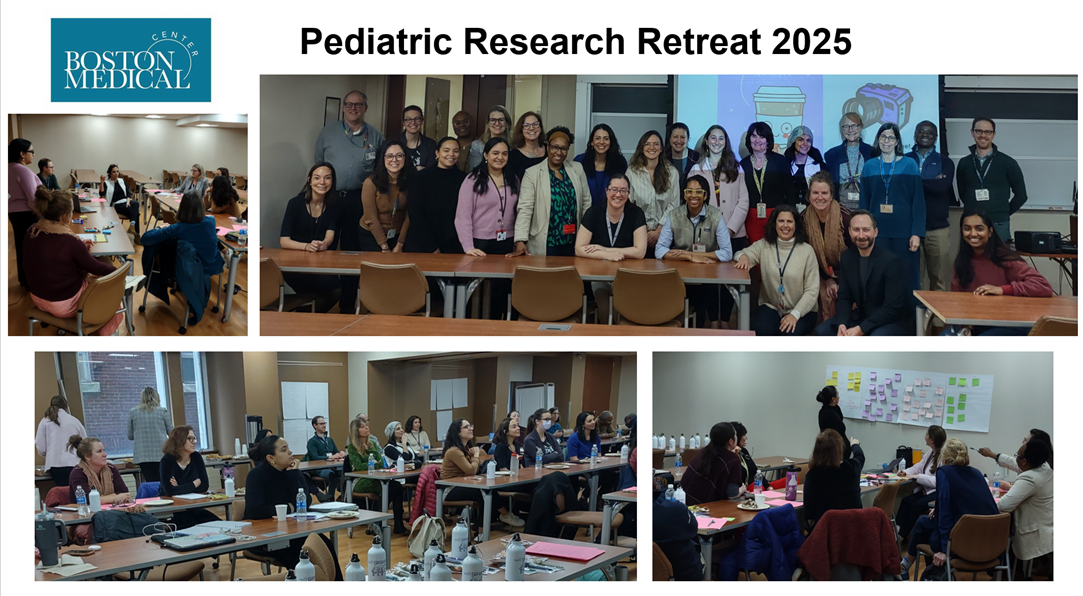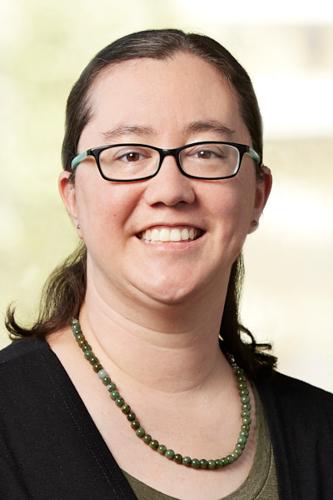The Department of Pediatrics at Boston Medical Center conducts a range of health services, clinical, translational, and basic science research. There are over 45 principal investigators in the department with over $17 million dollars in grant funding annually. Over the past three years, members have published over 200 peer-reviewed articles. On-going research includes longitudinal cohort studies, case-control studies, clinical trials, basic science studies, translational research, qualitative studies, secondary analysis of large-scale cohorts, and program evaluation. Content areas include health service research, gene-environment interactions, multilevel modeling, health disparities, social determinants of health, prematurity, breastfeeding, Hepatitis C, tuberculosis, cultural competency, exposure to violence, sickle cell disease, asthma, seizures in children, simulation-based emergency training, autism spectrum disorders, neonatal opioid withdrawal syndrome, substance use disorders in pregnancy and in adolescence, outcomes of children in families experiencing substance use disorders and criminal legal involvement, placental research, COVID-19, perinatal HIV, vaccination in pregnancy, and maternal depression. The department is also home to the Maxwell Finland Laboratory for Pediatric Infectious Diseases.
The Boston Medical Center Department of Pediatrics hosts a weekly research seminar series for research faculty and staff. Topics over the past year have included works in progress, guest speakers from collaborating departments and institutions, tips for writing Specific Aims pages, AI in scientific writing, pre and post award management, NIH biosketches and Other Support pages, and hiring and managing research staff. Please contact PedsHSR@bmc.org for more information.
HIGHLIGHT: Pediatric Research Retreat 2025

Pediatric Research Support Services
The BMC Department of Pediatrics Research Support Services provides centralized research services to all researchers in the Department including project management support, data analytic services, data cleaning, REDCap database builds, and IRB support services. The data analytic team consists of both senior and junior data scientists who can provide consultation on study design and also provide data analytic services for manuscript and abstract preparation. Project coordination support includes assistance with research staff on-boarding and training, study recruitment, and grant preparation support.
For more information on research support services, please contact: pediatric.research@bmc.org
Contact Us
801 Albany Street, Boston MA 02118
Research Programs
Adolescent Research
Adolescent Substance Use Research
Asthma Research
Developmental and Behavioral Pediatrics Research
Neonatal Research
Neonatal-Perinatal Health Equity Research
Pediatric Infectious Disease Research
Pediatric Neurology Research
Perinatal Substance Use Disorders Research
Placental-Fetal Physiology Research
Pulmonary Complications of Sickle Cell Disease Research
Our Team
Elisha M Wachman, MD

Alison Galbraith, MD, MPH

Health Services Research
The Division of Health Services Research (HSR), formerly known as the Division of General Academic Pediatrics (GAP), is a research division in the Department of Pediatrics at Boston Medical Center (BMC) and the Boston University (BU) Chobanian & Avedisian School of Medicine. The Division consists of researchers across the spectrum of pediatric health care, from general pediatrics to specialty care. Faculty, fellows, students, staff, and affiliated clinicians in the Division strive to use collaborative research about how health care is delivered that impact the health, development, and general wellbeing of children and families, especially those from historically marginalized populations.
Residency and Fellowship Information
The fellowship is based in the the Division of Health Services Research in the Department of Pediatrics at Boston Medical Center and at Boston University Chobanian & Avedisian School of Medicine. As you may know, BMC has over a 100-year history of caring for poor, urban and immigrant children. Much of our research and many of our programs focus on improving the lives of these children. The clinical service has approximately 2,000 admissions and 75,000 ambulatory visits each year. The residency is combined with Boston Children's Hospital. Learn more about the Pediatric Fellowship Program.
For more information on our specialized pediatric fellowships, please visit the following:
